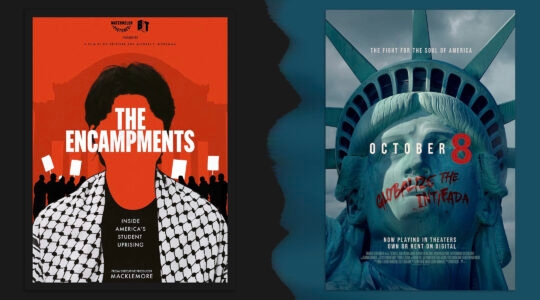The murder of George Floyd has sparked outrage and protests across the country, creating new attention to the challenges faced by black Americans and a resurgence of the exhortation that black lives matter. As is often and admirably the case, many American Jews have championed the call to social justice, but there has also been a nagging concern that in identifying with the larger Black Lives Matter movement, American Jews are compromising their Zionism.
While the principle that black lives matter is as important as ever, the coalition of groups that comprise the Movement for Black Lives includes a statement in its platform calling Israel an apartheid state and accusing it of being “complicit in the genocide taking place against the Palestinian people.” Given this inflammatory language, some Jews and Jewish groups are wary of affiliating with a movement that is open in its anti-Israel stance, and see Black Lives Matter as the latest example of Jews being unwelcome in progressive circles unless they denounce Israel and Zionism as the price of entry.
This stance is understandable. It is also a mistake.
One of the markers of American Judaism is that it is a distinctly American project. This means that American Jews are part of a larger tradition of Jews and Judaism, but are a unique subset that represents the most successful Jewish diaspora in history. That success is partially because American Jews are so well integrated into larger American society and culture, to the point that we are all familiar with the oxymoronic and largely American concept of “Judeo-Christian civilization.” Both the American component and the Jewish component are critical for American Jewish identity, and it means being responsive to larger American societal concerns.
In this instance, the quest for justice and equity irrespective of race or skin color is not only a core American value, but also an unquestionably Jewish value. Taken together, that creates a strong argument for American Jews to take up the Black Lives Matter banner as a movement. It does not mean that Israel is not important to American Jews and that we should not wear our Zionism proudly on our sleeves. But if we take the American part of our identities seriously, Israel is an important priority that has to be balanced against others as well.
What makes the balancing test here easier is that in standing up for black lives, American Jews are not being called to sacrifice one core priority in service of another. While there is anti-Israel sentiment, anti-Zionism and even anti-Semitism to be found in Black Lives Matter groups, Israel is ancillary to their focus at best. The central cause is justice and equity for a group of Americans living 6,000 miles away from Israel and with no connection whatsoever to the Israeli-Palestinian conflict, irrespective of the intersectional argument made in the Movement for Black Lives platform. Identifying with this cause does not actually require checking or compromising one’s Zionism. In asserting that black lives matter, there is no implication that Israel is to blame or that this is in some way inconsistent with support for Israel or Zionism.
Furthermore, if we as American Jews start creating ideological purity litmus tests for solidarity with other minority groups, it will inevitably boomerang on us. Following violent attacks on American Jews, our expectation as a community is that we will be supported by other Americans who also abhor anti-Semitism. If the standard was that solidarity with Jews under assault could only come if those Jews were anti-Zionist, for instance, or only voted Democratic, we would reject that as an absurd distraction and a dangerous standard to impose. And in fact, after shootings such as those at the Tree of Life synagogue and Poway (California) Chabad, many groups and individuals who are outspoken in their anti-Zionism stood in solidarity with American Jews, setting ideological purity tests aside. We rightly recoil at those who make lists of good Jews and bad Jews based on our relation to Israel, and we should not in this moment engage in similar behavior.
Identity is not singular, and ideological and values-based commitments do not have to be zero-sum. Discomfort with anti-Zionism in the Movement for Black Lives platform is natural, but we should not allow this discomfort to outweigh everything else. The question is not whether our pro-Israel identity should be discounted — it certainly should not — but whether that part of our identity will be subsumed by standing up for black lives and all that it entails. In this fraught moment, it is clear that pursuing justice means standing with black Americans and pushing back against systemic racism. Doing so meets our need to be both Jewish and American, and it also does not have to compromise our Zionism and support for Israel. Just as Jewish law considers a dish with a 60-to-1 ratio of kosher to non-kosher food to be unequivocally kosher, there is no question that we should view Black Lives Matter in similar terms.
Michael Koplow is policy director at the Israel Policy Forum. His column appears monthly.
The New York Jewish Week brings you the stories behind the headlines, keeping you connected to Jewish life in New York. Help sustain the reporting you trust by donating today.





